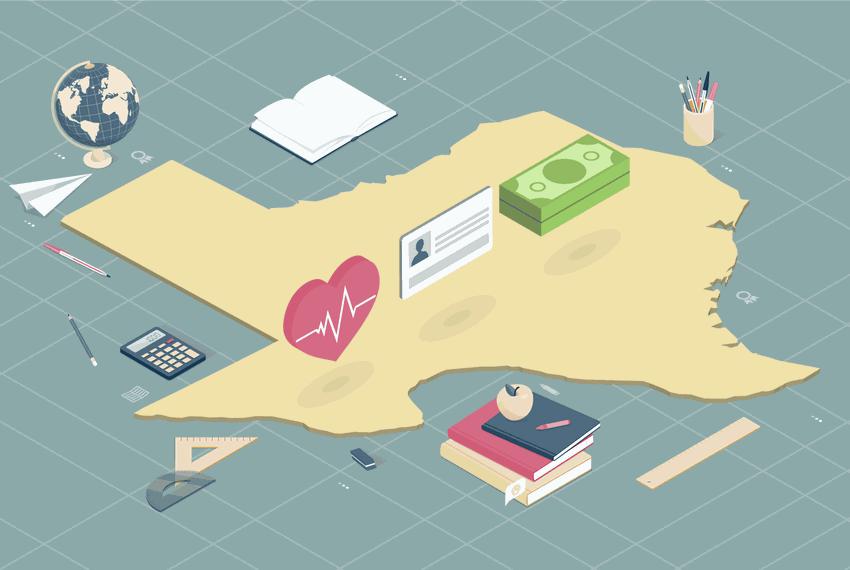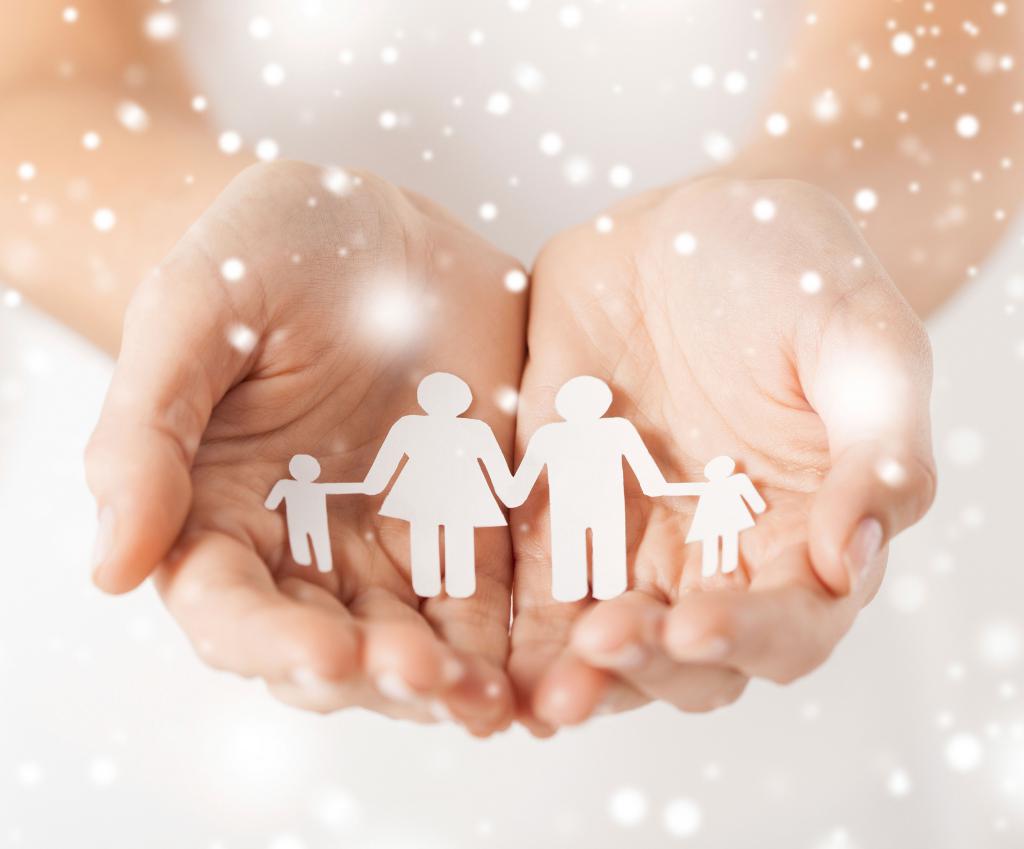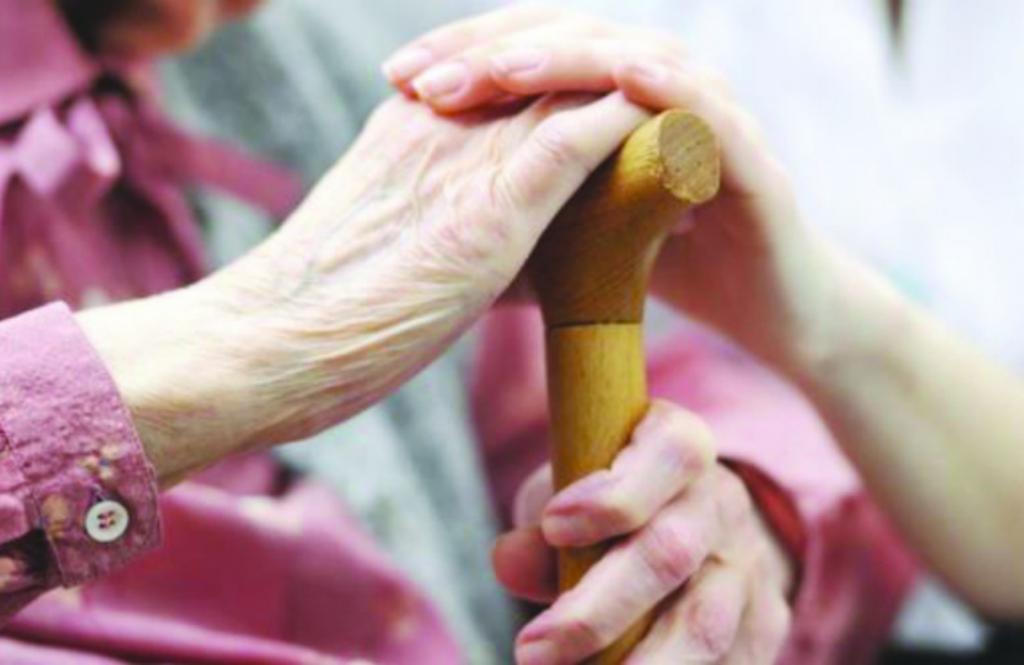Social benefits - this is financial assistance from the state for certain groups of citizens who, for a number of reasons, are in a constrained financial situation. They are established and regulated by federal law. Regional authorities may increase the amount and amount of benefits within their entity.

Grounds for payment
State social benefits are paid in the following cases:
- when compensation is needed for lost earnings (for example, unemployment benefits or loss of a breadwinner, payment of disability certificates, remuneration of the mother caring for a disabled child);
- when, for objective reasons, a citizen's expenses increase (birth of a child, death of a relative).

Features
State social benefits have a number of features:
- These are payments from the state federal or regional budget;
- provision rules are regulated by law;
- depending on the type of benefit, the payment can be one-time or monthly (during the time that the citizen retains the right to it);
- the size may depend on average earnings or be fixed;
- when a citizen ceases to need support, the payment of benefits ceases.
Benefits at the federal level
Federal benefits are paid:
- citizens who have been awarded awards for services to the country and the population (Hero of Labor, Honorary Donor);
- received a certain status (mothers with many children, veterans, invalids).
Federal payments are made from the federal budget. Money is allocated annually to ministries or departments for specific items of expenditure planned in the annual budget.
Regional level
Each subject of the federation can independently establish benefits. The payment of social benefits is made from the regional budget, so the size and accessibility of certain benefits will depend on the security and well-being of the territory or region. The difference between the subjects can be significant.
Regional authorities themselves determine the recipients of the assistance. Particular attention is paid to the birth of children (regional maternity capital, allowances for the care of a child under 3 years old to large mothers).
It is important that federal payments cannot be reduced or canceled.

Selected benefits
Benefits vary in size and methods of accrual: some are calculated on the basis of average earnings, others are fixed. Consider the examples of various payments.
The temporary disability benefit is calculated by the employer (that is, only officially employed citizens are entitled to it), depending on the length of service and average daily earnings, paid by the Social Insurance Fund.
There are few social benefits paid to the FSS; they are related to the occurrence of insured events. When applying to the employer for payment through the FSS, the recipient must write a statement to this body. The employer sends it electronically with the application of his calculation. In the presence of a contentious situation or doubtful data, a specialist of the Fund may send a request to the organization to clarify the submitted information about the presence of non-insurance periods in the experience, to confirm the experience.
When children appear, the state offers several payments to support parents.
With early registration with a gynecologist, the expectant mother will receive a small surcharge to the sick leave for pregnancy and childbirth. During the registration of the certificate of incapacity for work, she will be given a certificate of the period of registration.It must be handed over to the personnel department.
At the onset of the thirtieth week of pregnancy, a working woman is given a disability certificate so that she can spend the last months of pregnancy at home and calmly prepare for the birth of the baby, and also be able to recover from childbirth. It must be provided to the personnel department. The payment is calculated based on the experience and average earnings of women, paid by the Social Insurance Fund. Some employers guarantee by their Collective Agreement that the pregnant woman will pay up to 100% of the average earnings.
Immediately after the birth of a child, one of the parents has the right to a lump-sum allowance for the birth of a child. An employment parent submits an application for payment with a package of documents to the personnel department of the employer. If mom and dad do not work, the payment is made out in the office of social protection. The allowance has a fixed size.
After the maternity leave, a woman can go to work or take leave to care for a child. Dad or any other relative who is actually caring for a child is also entitled to such leave. When choosing a family usually comes from their financial capabilities. The amount of social benefits for caring for a child up to one and a half years is 40% of the average earnings, paid at the expense of the FSS. But the Fund has a maximum allowance, above which there will be no payment, despite the high salary. Therefore, often a grandmother draws up a vacation, and parents work at full strength. When you go to work on a part-time, the allowance is saved. The allowance for caring for a child from one and a half to three years is ridiculously small, so women are forced to go to work.
Disabled citizens can only rely on minimum payments.
Adopters of newborns have equal rights to benefits with biological parents. The only exception is the maternity allowance.
Mothers with single status (a dash in the "Father" column on a birth certificate) are eligible for state benefits. Working and non-working mothers can apply for it. For employed people, the amount is calculated on the basis of average earnings, for the unemployed - from the minimum wage.
In the event of the death of a citizen, relatives can apply for assistance in burial, for this you need to have a certain level of income.
Citizens with limited physical abilities are entitled to a pension - a social allowance that replaces full wages. A citizen can work, while the pension will be maintained. Payment is made monthly, the size depends on the disability group.
For families whose income is less than the subsistence level, support is provided in the form of allowances, free meals at school, gifts for the holidays for children from social protection agencies.
Large families are also the object of state support. They are entitled to various benefits when paying for kindergartens, utility bills, regional maternity capital, and payment of part of the mortgage.

Order of registration
Benefits are drawn up by various government bodies or the employer, a lot depends on the applicant’s employment. The package of documents required to confirm the right to payment is also different.
A feature of the registration of state benefits in the Russian Federation is their exclusively declarative nature. That is, to receive any help from the state, a citizen must independently apply to the authorities or to the employer with a statement. The existence of an actual right (for example, a child was born in a family) does not imply an automatic payment of benefits. If the applicant missed the deadline for submitting the application or did not collect the documents on time, then payment will not be made. If we are talking about monthly payments, they are accrued from the moment of appeal, they do not pay compensation for the missed period.

Where to go
To receive benefits related to the birth of a child, working parents apply to the personnel department of the employer, non-working - to the department of social protection of the population. The exception is maternal capital, it is drawn up at the Pension Fund, and all further manipulations with state money for the second and subsequent children are made there.
Disability benefits are supervised by social security and the Pension Fund. Also, the Pension Fund must apply with the status of pensioners, children of war, combatants, home front workers.
To simplify the procedure for processing any allowance, the state has created a network of multifunctional centers that provide any public services on a one-stop basis. There, experts will advise on the list of documents for processing payments, draw up the allowance itself, and suggest its size.

List of required documents
To confirm the right to receive benefits, the applicant must provide some documents:
- application for calculating the amount;
- identity document - passport;
- birth or death certificate;
- SNILS, TIN;
- certificate of family composition;
- divorce certificate (if necessary);
- Act on cohabitation with a child, a disabled child;
- certificates of income of family members;
- certificates confirming the status of a mother of many children, a disabled person, a guardian;
- certificate of incapacity for work.
The list of documents varies depending on the type of benefit. State bodies of constituent entities of the Russian Federation may also introduce additional items.

Sizes and payment procedures
Depending on the allowance, the amount may be fixed, based on the minimum wage, or based on the average earnings of the applicant. Regions can increase the size of payments or assign additional types of benefits that will be applied on their territory. It is impossible to reduce or cancel state benefits.
When applying for benefits, the applicant specifies how he wants to receive transfers: by postal order or on a bank card.
The amount of benefits is indexed annually depending on inflation, the size of the minimum wage. In addition, it is influenced by the regional characteristics of the area where the applicant lives. So-called “northern” and district coefficients are wound up for the allowance.
